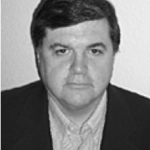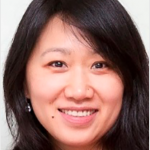Tom Mens
June 15, 2022. 14h (UTC+2)

Title: Practical advice on Principles, Promises and Pitfalls to become a successful PhD student
Abstract: This talk is targeted to PhD students. The aim is to provide some practical advice to become a successful PhD student. Based on my experience as a PhD student, PhD advisor, and based on precious feedback received from my former PhD students, I report on principles, promises and pitfalls that you should take into account during the course of your PhD career, and even beyond that (as a postdoc researcher or in industry).
Biography: Tom Mens is full professor at the University of Mons, where he is directing the Software Engineering Lab since October 2003. He is currently co-supervising four PhD students. He obtained a PhD in Science in 1999 at the Vrije Universiteit Brussel. His current research interests include software evolution, empirical software engineering, open source software ecosystems, software automation and collaborative software development. He published numerous scientific articles in peer-reviewed international software engineering conferences and journals. He is involved in several research projects, and is project leader of the Belgian FNRS-FWO Excellence of Science project SECO-Assist to nurture the software ecosystems of the future.
Links :
https://orcid.org/0000-0003-3636-5020
https://scholar.google.com/citations?user=5RJe8dsAAAAJ&sortby=pubdate
https://staff.umons.ac.be/tom.mens/
https://www.linkedin.com/in/tommens/
William B Frakes
June 16, 2022. 15h (UTC+2)

Title: Software Reuse and Domain Engineering – Industry Impact and Future
Biography: William B. Frakes received the BLS degree from the University of Louisville, the MS degree from the University of Illinois at Urbana-Champaign, and the MS and PhD degrees from Syracuse University. He chairs the IEEE TCSE committee on software reuse, and is an associate editor of IEEE Transactions on Software Engineering.
Links:
http://plato.cs.nvgc.vt.edu/people/faculty/frakes.php
https://ieeexplore.ieee.org/author/37611664300
Martin Griss
June 16, 2022. 16h30 (UTC+2)

Title: The Reuse Rabbi Reflects
Abstract: The speaker, Martin Griss, widely known as HP’s “Reuse Rabbi,” reflects on the developments and experiences that shaped his work on reuse. The maturation and convergence of several technologies and methods in reuse, architecture, modeling, process and domain engineering yielded the influential 1998 ICSR paper “Integrating Feature Modeling with the RSEB”, as a productive collaboration between Martin, then at HP Laboratories, and John Favaro and Massimo d’Alessandro, then at Intecs Sistemi. The talk will also touch on several more recent research ideas, some described in his 2015 ICSR keynote, including reuse in the context of software agents, systems engineering, and crowdsourcing, and the connection of features, aspects, and components.
Biography: Dr. Martin L. Griss has nearly 60 years of experience in software research, education and management, primarily focused on software reuse, software engineering , software agents, context-aware intelligent systems, and mobile personal assistants. He retired in 2016 as Principal Research Scientist after 13 years at Carnegie Mellon University, Silicon Valley Campus (CMUSV). He was founder and director of the Cylab Mobility Research Center and the CMU Disaster Management Initiative, working on mobile disaster communication. He has held multiple positions at CMUSV, previously as Director of the CMUSV campus and Associate Dean, and as manager of several departments and programs. Martin spent two decades as Principal Laboratory Scientist at Hewlett-Packard, Director of HP’s Software Technology Laboratory, and manager of multiple departments. Known as HP’s “reuse rabbi”, Martin is a leading authority on software reuse and component-based development. He led HP’s corporate reuse program, working with multiple HP and external organizations. He led HP’s contribution to the UML standard, and co-authored a respected reuse book. Before that he was an associate professor of Computer Science at the University of Utah, and adjunct professor at UC Santa Cruz, working on software portability, software engineering and software agents. He received his PhD in Theoretical Physics at the University of Illinois, and his BS in Math/Physics (summa cum laude) at the Technion, Israel. He is an amateur radio operator, leader of a neighborhood CERT, and an accomplished amateur silversmith and art welder.
Ying (Jenny) Zou
June 17, 2022. 14h50 (UTC+2)

Title: Intelligent Management of Code Clones
Abstract: Code clones are identical or similar code fragments. Code clones are introduced intentionally or accidentally by copy-and-paste actions. Once created, clones must be maintained as they evolve throughout the lifetime of a software system. Approximately 20% of code can be clones, with clones generally considered as a contributing factor to software defects. Due to the large amounts of clones, the limited resources available and time-to-market pressure, it is often intractable for developers to manage clones. In this talk, I share some of our experience and research findings in the effective management of clones throughout the evolution of large-scale software systems.
Biography: Dr. Ying Zou is a Canada Research Chair (Tier I) in Software Evolution. She is a professor in the Department of Electrical and Computer Engineering and cross-appointed to the School of Computing at Queen’s University in Canada. She is a visiting scientist of IBM Centers for Advanced Studies (CAS), IBM Canada. She was awarded with 2014 IBM CAS Research Faculty Fellow of the Year. Dr. Zou also won twice IBM Faculty Awards in 2007 and 2008. The 2008 IBM Faculty award was selected to grant top amounts from IBM worldwide program. The candidates must have an outstanding reputation for contributions in their field or, in the case of junior faculty, show unusual promise. Her research interests include software engineering, software maintenance and evolution, empirical studies, software analytics and service-oriented computing.
Links:
